
Whaling is the process of hunting of whales for their usable products such as meat and blubber, which can be turned into a type of oil that became increasingly important in the Industrial Revolution. It was practiced as an organized industry as early as 875 AD. By the 16th century, it had risen to be the principal industry in the coastal regions of Spain and France. The industry spread throughout the world, and became increasingly profitable in terms of trade and resources. Some regions of the world's oceans, along the animals' migration routes, had a particularly dense whale population, and became the targets for large concentrations of whaling ships, and the industry continued to grow well into the 20th century. The depletion of some whale species to near extinction led to the banning of whaling in many countries by 1969, and to a countrywide cessation of whaling as an industry in the late 1980s.

Whales are a widely distributed and diverse group of fully aquatic placental marine mammals. They are an informal grouping within the infraorder Cetacea, which usually excludes dolphins and porpoises. Whales, dolphins and porpoises belong to the order Cetartiodactyla, which consists of even-toed ungulates. Their closest non-cetacean living relatives are the hippopotamuses, from which they and other cetaceans diverged about 54 million years ago. The two parvorders of whales, baleen whales (Mysticeti) and toothed whales (Odontoceti), are thought to have had their last common ancestor around 34 million years ago. Whales consist of eight extant families: Balaenopteridae, Balaenidae, Cetotheriidae, Eschrichtiidae, Monodontidae, Physeteridae, Kogiidae, and Ziphiidae.
The International Whaling Commission (IWC) is an international body established under the terms of the 1946 International Convention for the Regulation of Whaling (ICRW) to "provide for the proper conservation of whale stocks and thus make possible the orderly development of the whaling industry".
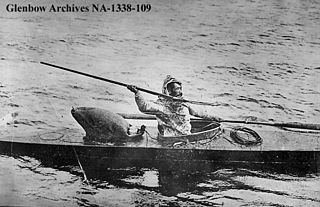
A harpoon is a long spear-like instrument and tool used in fishing, whaling, sealing, and other marine hunting to catch large fish or marine mammals such as whales. It accomplishes this task by impaling the target animal and securing it with barb or toggling claws, allowing the fishermen to use a rope or chain attached to the projectile to catch the animal. A harpoon can also be used as a weapon. Certain harpoons are made with different builds to perform better with the type of target being aimed at: the Inuit for example have short, fixed foreshaft harpoons for hunting at breathing holes while loose shafted ones are made for attaching to the game thrown at.

Whale watching is the practice of observing whales and dolphins (cetaceans) in their natural habitat. Whale watching is mostly a recreational activity, but it can also serve scientific and/or educational purposes. A study prepared for International Fund for Animal Welfare in 2009 estimated that 13 million people went whale watching globally in 2008. Whale watching generates $2.1 billion per annum in tourism revenue worldwide, employing around 13,000 workers. The size and rapid growth of the industry has led to complex and continuing debates with the whaling industry about the best use of whales as a natural resource.
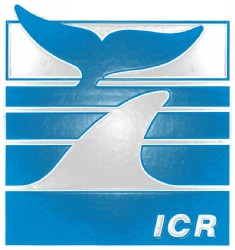
The Institute of Cetacean Research: is a Japanese entity that claims to be a research organization specializing in the "biological and social sciences related to whales".
A wasp is a type of flying insect.

Japanese whaling, in terms of active hunting of whales, is estimated by the Japan Whaling Association to have begun around the 12th century. However, Japanese whaling on an industrial scale began around the 1890s when Japan started to participate in the modern whaling industry, at that time an industry in which many countries participated. Modern Japanese whaling activities have extended far outside Japanese territorial waters, including whale sanctuaries protected by other countries.
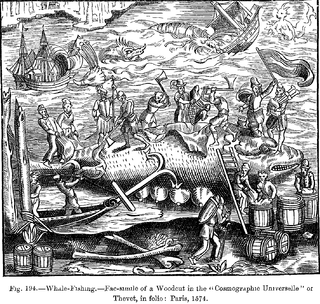
This article discusses the history of whaling from prehistoric times up to the commencement of the International Whaling Commission (IWC) moratorium on commercial whaling in 1986. Whaling has been an important subsistence and economic activity in multiple regions throughout human history. Commercial whaling dramatically reduced in importance during the 19th century due to the development of alternatives to whale oil for lighting, and the collapse in whale populations. Nevertheless, some nations continue to hunt whales even today.
Diana most commonly refers to:
Mamma mia, Mammamia, Mamamia or Mumma Mia may refer to:
POV most commonly refers to:
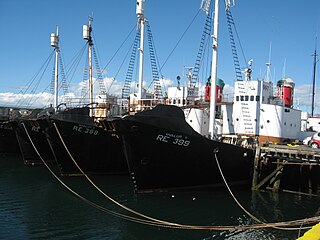
Whaling in Iceland began with spear-drift hunting as early as the 12th century, and continued in a vestigial form until the late 19th century, when other countries introduced modern commercial practices. Today, Iceland is one of a handful of countries that formally object to an ongoing moratorium established by the International Whaling Commission in 1986, and that still maintain a whaling fleet. One company remains concentrated on hunting fin whales, largely for export to Japan, while the only other one previously hunted minke whales for domestic consumption until 2020, as the meat was popular with tourists. In 2018, Icelandic whalers were accused of slaughtering a blue whale. Whaling has been temporarily paused in Iceland since 2019 as coronavirus restrictions, competition from subsidized Japanese whaling, and increasing domestic whale watching tourism have hampered the industry. It is uncertain if commercial whaling will resume in 2022. A ban may also come about by 2024 due to low demand and profitability. Iceland has a whale watching sector, which exists in tension with the whaling industry.
Mary Ann or Maryann or Mary Anne may refer to:

Sperm whaling is the hunting of the marine mammals for the oil, meat and bone that can be extracted from their bodies. Sperm whales, a large and deep-diving species, produce a waxy substance that was especially useful during the Industrial Revolution, and so they were targeted in 19th-century whaling, as exemplified in Moby Dick. Sperm oil is no longer needed, but another unusual product, ambergris, is still valued as a perfume fixative. Although the animal is classified as a vulnerable species, aboriginal whaling in limited numbers is still permitted, notably from two villages in Indonesia, for subsistence.
"Whale Whores" is the eleventh episode of the thirteenth season of the American animated television series South Park. The 192nd overall episode of the series, it aired on Comedy Central in the United States on October 28, 2009. In the episode, Stan joins an anti-whaling crew in order to save dolphins and whales from Japanese whalers.
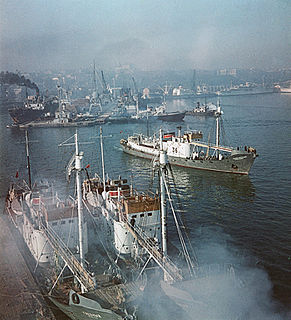
Russian whaling has been conducted by native peoples in the Chukotka region of Russia since at least 4,000 years ago by native Yupik and Chukchi people, but commercial whaling did not begin until the mid-19th century, when companies based in Finland sent out vessels to the Pacific. It was not until 1932 that modern pelagic whaling began to take off with the purchase of an American cargo ship which was renamed the Aleut, which was the only Soviet factory ship until World War II. After the war, with the need for a stronger Soviet economy and rapid industrialization of the country during the 1940s and 1950s, Soviet whaling took off and became a truly global industry. The first Soviet whalers reached the Antarctic during the 1946–47 season with the factory ship Slava and then underwent a rapid expansion during the late 1950s in which 5 new fleets were added within a 4-year span: Sovetskaya Ukraina in 1959, Yuriy Dolgorukiy in 1960, and Sovetskaya Rossiya in 1961 for the Antarctic, and finally two large fleets in 1963 for the North Pacific. Thus, by the early 1960s Soviet whaling had truly become a global industry, operating in every ocean except the North Atlantic and undertaking voyages that could last as long as seven months each. From 1964 to 1973, the Soviet Union was considered by some the biggest whaling nation in the world.
"Soon May the Wellerman Come", also known as "Wellerman" or "The Wellerman" [c. 1860–70] is a sea ballad from New Zealand. The song refers to the "wellermen", pointing to supply ships owned by the Weller brothers, who were amongst the earliest European settlers of Otago.









